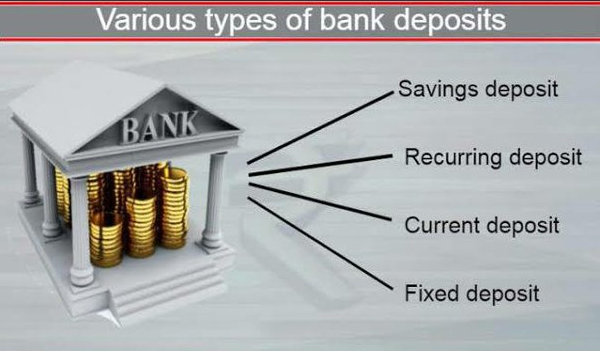Section 4-1: Deposits
Section 4-1: Deposits
Overview

 Deposits refer to the action of placing money or funds into a bank account. When you make a deposit, you are essentially entrusting your money to the bank, which holds it securely on your behalf.
Deposits refer to the action of placing money or funds into a bank account. When you make a deposit, you are essentially entrusting your money to the bank, which holds it securely on your behalf.
Types of Deposits:
Cash Deposits: This involves physically depositing cash into your bank account. You can do this at a bank branch, ATM, or through certain cash deposit services.
Check Deposits: Check deposits involve depositing a check into your account. This can be done by endorsing the check and either bringing it to a bank branch, using an ATM with check deposit functionality, or utilizing mobile deposit through your bank's app.
Direct Deposits: Direct deposits involve the electronic transfer of funds into your account. This could be your salary or wages from an employer, government benefits, pension payments, or other recurring payments.
Electronic Transfers: You can transfer funds electronically from another account you own or from an external account to your checking or savings account. This can be done through online banking, mobile banking apps, or by setting up recurring transfers.
Wire Transfers: Wire transfers allow you to send or receive funds electronically between different financial institutions. This is often used for large transactions or when immediate transfer of funds is required.
Purpose of Deposits:
Secure Storage: Banks provide a safe and secure environment for your money. Depositing funds into a bank account reduces the risk of loss or theft associated with holding cash.
Convenience: Having funds in a bank account allows you to access your money conveniently through various channels, such as debit cards, checks, online banking, and ATMs.
Earn Interest: Depending on the type of account, deposited funds may earn interest over time, allowing you to grow your savings.
Transaction Facilitation: Deposits enable you to make payments, transfers, and withdrawals, facilitating everyday financial transactions.
Financial Planning: Deposits are the foundation for managing your finances, budgeting, and saving for short-term and long-term goals.
Considerations:
FDIC Insurance: Deposits made in accounts held by banks that are members of the Federal Deposit Insurance Corporation (FDIC) are typically insured up to the maximum allowable limit per depositor, per bank, for each account ownership category.
Deposit Holds: Banks may place holds on certain deposits, especially checks, to ensure they clear before the funds are made available for withdrawal or use.
Transaction Limits: Some accounts may have restrictions or limits on the number of deposits allowed per month or transaction, as well as minimum balance requirements.
Overall, deposits are a fundamental aspect of banking that provide individuals and businesses with a safe, convenient, and efficient means of managing their finances and accessing financial services.
Online Textbook Read Section 4-1: Deposits
